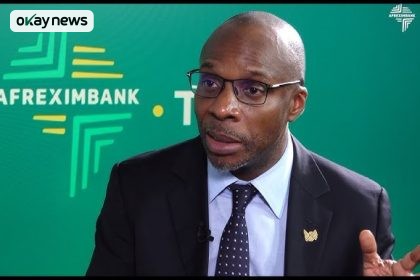Special Adviser to President Bola Ahmed Tinubu on Economic Affairs, Dr. Tope Fasua, has argued that Nigerians are, in many respects, better off today than they were at the time of independence in 1960.
Speaking during an interview on Channels Television, Fasua stressed that many citizens are quick to compare present-day hardship with the past without acknowledging the historical struggles that shaped Nigeria’s growth.
“For those who try to compare Nigeria to 1960, in many ways we are living a better life now than used to be the case. In 1960, just after independence, we had a whole lot of people, of course, living in villages and so on,” he explained.
According to him, the transition from rural living to major urban centres such as Lagos, Ibadan, Kaduna, and Enugu in the post-independence era contributed to the rise of urban poverty, as many families who migrated were ill-prepared for city life.
He further stressed that the Tinubu administration is deliberately avoiding quick fixes like cash handouts but instead focusing on policies and investments in infrastructure that can secure the future of Nigerians.
“The current administration of President Bola Ahmed Tinubu is saying that, look, we are not going to really be sharing money, we want to do something that takes us on a different trajectory, that paints a new picture, that prepares even our children and unborn children for a better life than what we have had,” Fasua said.
At independence, Nigeria had a population of about 45 million, with agriculture dominating the economy and access to social services restricted to a few urban dwellers. Today, with a population exceeding 230 million, the country has seen significant expansion in education, healthcare, electricity, and road infrastructure.
Fasua dismissed the 2022 Multidimensional Poverty Index released by the National Bureau of Statistics (NBS), which reported that 133 million Nigerians lived in multidimensional poverty. He insisted that new projects have already changed those figures.
“If we redid the multidimensional poverty today, perhaps 10 to 20 million people have been taken out of poverty due to these investments,” he maintained.
He added that inflation, which once peaked at 34 percent before falling to 24 percent, is on a downward trend. Fasua credited ongoing reforms with lifting 5–6 million Nigerians out of poverty, citing data from the World Poverty Clock.
“Because if we are saying that you want to have a better country, it had better be good and better for the majority of the people. But if you’re saying you yourself, you think that you are poorer today than you were a few years ago, and then that means that nothing is being achieved, you are wrong, you know,” he said.
okay.ng reports that Fasua’s remarks come as the federal government continues to emphasize infrastructural renewal, economic reforms, and policies designed to reduce unemployment.







